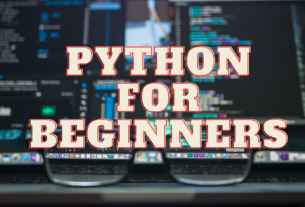Exception handling is a crucial aspect of Python programming, enabling you to write code that gracefully handles errors and unexpected situations. Let’s explore more examples and real-world scenarios to deepen your understanding.
Exception Hierarchy
In Python, exceptions are organized in a hierarchy. Understanding this hierarchy helps you handle specific exceptions or catch more general ones.
try:
# Some code that may raise an exception
except SpecificException as se:
# Handle the specific exception
except GeneralException as ge:
# Handle a more general exception
except Exception as e:
# Catch any other exceptions
Handling Multiple Exceptions
You can handle multiple exceptions in a single except block or have separate blocks for each.
try:
# Some code that may raise different exceptions
except (SpecificException1, SpecificException2) as se:
# Handle specific exceptions together
except AnotherException as ae:
# Handle a different exception
except Exception as e:
# Catch any other exceptions
Using else and finally
The else block is executed if no exceptions are raised, and the finally block always executes, regardless of whether an exception occurred.
try:
# Some code that may raise an exception
except SpecificException as se:
# Handle the specific exception
else:
# Code to execute if no exception occurred
finally:
# Code that always executes
Real-world Example: Reading Configuration from a File
Let’s consider a scenario where your program needs to read configuration settings from a file. You want to handle the case where the file is missing or has incorrect content.
config_file = "config.txt"
try:
with open(config_file, "r") as file:
config_data = json.load(file)
# Process the configuration data
except FileNotFoundError:
print(f"Error: The configuration file '{config_file}' is missing.")
except json.JSONDecodeError as je:
print(f"Error decoding JSON in '{config_file}': {je}")
except Exception as e:
print(f"An unexpected error occurred: {e}")
else:
print("Configuration loaded successfully.")
finally:
print("Configuration reading process complete.")
In this example, we attempt to read a JSON configuration file. We handle the case where the file is not found, the JSON decoding fails, or any other unexpected errors occur.
Exercise: Handling Divide by Zero
Extend your understanding by handling the divide-by-zero error. Create a function that takes two numbers as input and divides them. Handle the divide-by-zero exception and print an informative message.
def divide_numbers(a, b):
try:
result = a / b
print(f"The result of {a} divided by {b} is: {result}")
except ZeroDivisionError:
print("Error: Division by zero is not allowed.")
# Test the function
divide_numbers(10, 2)
divide_numbers(5, 0)
This exercise simulates a real-world situation where you need to handle the possibility of division by zero.
Conclusion: Mastering Exception Handling
Exception handling is a skill that evolves with practice. By applying it to diverse scenarios and real-world situations, you build robust and resilient code. As you continue your Python journey, keep exploring new challenges and refining your exception handling skills.
Stay curious, keep coding, and get ready for more advanced Python concepts in the days to come!


